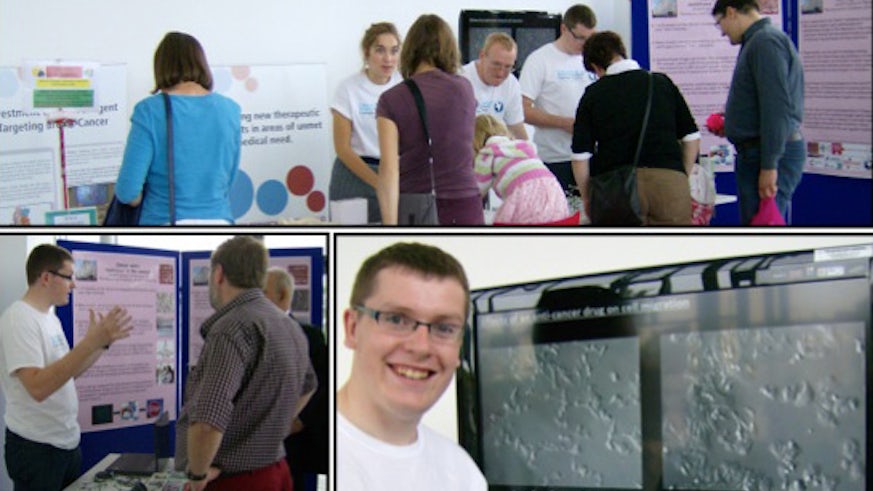Cardiff Cancer Research Open Day
20 Medi 2014

This Cancer Research Open Day was held on Saturday 20th September 2014, a free event open to the public to show how researchers are fighting cancer in Cardiff.
Researchers from the Cardiff School of Pharmacy and Pharmaceutical Sciences were enthusiastically involved with their interactive stand showing how we are working together to discover cancer mechanisms pioneering development of new cancer drugs. The event was aimed at an audience of all ages.
Prof Arwyn Jones and Dr Julia Gee organised the PHRMY team which included: Dr Iain Hutcheson, Hope Roberts Dalton, Dr Andrew Westwell, Richard McClelland, Sam Jones, Jessica Davis, Benyamin Ertefai and Dionysia Lymperatou and our further cancer researchers for their help towards making the stand a success.

Build a Cancer Drug and Skittle Game
The idea of the game at the PHRMY stand was to try and convey to the general public the concept of antihormone resistance; A problem which can develop during breast cancer treatment with drugs such as tamoxifen. Richard McClelland who designed and built The Skittles Game which represents cancer cells which could be successfully treated (responsive cells) by being knocked down by the antihormone drug (the swinging medicine bottle). However a few of the skittles were magnetised which made them less easy for the treatment to knock down. These represented the antihormone resistant cells, which can be more difficult to treat.
Other parts of the PHRMY stand then went on to describe how we are tackling this resistance problem in the laboratory through the development and study of novel breast cancer cell lines which reflect both the drug responsive and drug resistant tumour types. These cell lines allow us to compare their gene expression and proteins produced and thus identify potential pathways and molecules involved in the resistance process. We can then develop new drugs to target these that hopefully can delay or prevent the antihormone drug resistance developing in the laboratory.
Life Science Research Network
The event was also attended by the pan-Wales Life Science Research Network Wales which brings researchers together from across Wales who are active in the area of drug development. This Network is part of the Welsh Government's £15M Ser Cymru initiative and has supported a number of projects aimed at developing the next generation of cancer drugs.